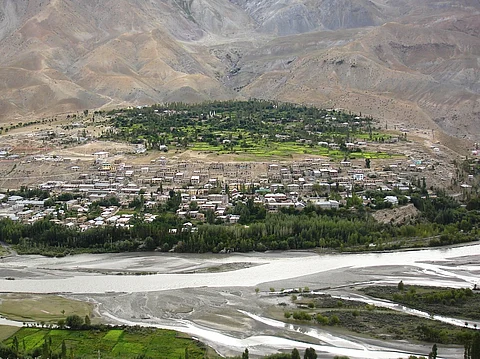

As the US President Donald Trump continues to boast about his role in defusing military tensions between India and Pakistan during recent border flare-ups, a hauntingly similar episode from South Asia’s past has returned to the spotlight.
A secret peace initiative during the 1999 Kargil conflict that nearly averted war was sabotaged by Pakistan’s own establishment at the behest of the US, which wanted to take credit for de-escalation.
The comparison is striking just as Trump claims he “brought both sides to their senses,” back in 1999, US President Bill Clinton stepped in—but only after a clandestine deal between India and Pakistan had already been painstakingly crafted, and then recklessly leaked to the US.
In both cases, global diplomacy rushed in only after local actors lost control over fast-escalating situations. But in 1999, unlike in Trump’s recent boasts, a potential bilateral breakthrough was fatally undermined by forces from within.
In a revelatory interview with former bureaucrat and TV anchor Orya Maqbool Jan, former Pakistani Foreign Secretary Shamshad Ahmed Khan unveiled details of that ill-fated back channel effort—an episode he believes could have rewritten the subcontinent’s trajectory if not for a damaging internal leak.
“We had reached an understanding through then Indian Prime Minister Atal Bihari Vajpayee’s envoy R.K. Mishra and Pakistani diplomat Niaz Naik.
A draft agreement was on the table. It would have led to a phased withdrawal from Kargil and revived the Lahore peace process,” said Shamshad.
During the Kargil war, Mishra and Indian diplomat Vivek Katju had arrived in Lahore discreetly to meet Nawaz Sharif.
Together with Pakistani officials, they negotiated an eight-point framework for de-escalation. This effort, if successful, would have been a diplomatic extension of the historic Lahore Declaration signed just months earlier.
But before it could be signed, “someone from our own system—either Sartaj Aziz or Tariq Fatemi—leaked it to the Americans,” he alleged. “That act alone brought in Clinton, killing our chances of a bilateral resolution.”
The leak gave the US the diplomatic leverage to force Pakistan into a complete withdrawal from Kargil—without the face-saving compromises that had been built into the original back channel accord.
Shamshad’s disclosures suggest that Pakistan lost an opportunity to de-escalate on its own terms—long before international intervention became inevitable.
He said the Lahore Agreement between Vajpayee and Nawaz Sharif was the most comprehensive process ever undertaken.
“We had the momentum. Both Vajpayee and Sharif were committed to peace. This was the most comprehensive process we had ever undertaken—covering everything from Kashmir to nuclear CBMs,” Shamshad said.
Kargil Changed Everything
But Kargil changed everything. Shamshad revealed that neither he nor the Prime Minister was informed when the military began its infiltration. “We were in Colombo when we heard whispers. Upon return, we demanded a full briefing.”
That briefing came on May 17, 1999, at the infamous Ojhri Camp. “All senior military commanders—Musharraf, Aziz, Mehmood—were present. Nawaz Sharif looked visibly shocked. General Aziz told him, ‘You will be remembered as the man who fulfilled Quaid-e-Azam’s unfinished agenda’.”
Sharif ordered a symbolic signboard reading “Kashmir Highway” to be installed on Murree Road. But by June, international pressure mounted, and the strategic tide began to turn against Pakistan.
As Clinton took over the narrative post-leak, Shamshad prepared a position paper suggesting terms for dignified disengagement. But the Americans rewrote the agreement unilaterally.
“Clinton’s team deleted all nuance. The final version simply read: ‘End the aggression.’ Nawaz Sharif signed it. Sandy Berger told me bluntly, ‘Your boss accepted everything.’”
Shamshad also refuted Nawaz Sharif’s later claim that Clinton offered $5 billion to avoid nuclear tests or withdraw from Kargil. “That’s not how American presidents operate. Clinton only hinted at potential economic aid—no cheque was ever on the table.”
Shamshad also gave a chilling account of the October 12, 1999, coup that deposed Nawaz Sharif.
“It wasn’t Musharraf who acted first. Nawaz tried to sack him and appoint General Ziauddin—without even consulting Ziauddin. The army’s response was immediate.”
Watching PTV coverage of troops storming the station, Shamshad called the PM. “He simply said: ‘They have come, Shamshad sahib.’ That was all.”
Reflecting on Pakistan’s 1998 nuclear tests, Shamshad revealed a dramatic episode: a possible joint Indian-Israeli airstrike was foiled after he directly warned Israel of “unimaginable consequences” if it acted militarily.
He told Nawaz Sharif, “There is no price for independence and survival.” That sentence, he said, tipped the scale towards going nuclear.
Present in New York during the 9/11 attacks, Shamshad watched history unfold from Pakistan’s UN mission. “We were evacuated as the Twin Towers collapsed. The skyline—and the world—changed.”
He flatly denied Musharraf’s claim that the US threatened to bomb Pakistan into the “Stone Age.”
“That’s a myth. The Americans needed us more than we needed them. I saw no coercion—only mutual necessity.”
He added, "I saw no coercion from the US. In fact, they were more eager to secure Pakistani cooperation than issue threats. The real diplomacy was mutual dependence."
Today, as Trump claims personal credit for India-Pakistan ceasefires and presents himself as a peacemaker, Shamshad’s revelations offer a sobering counterpoint.
They show that while leaders may posture as mediators, real peace is often negotiated quietly—and lost just as quietly to ambition, fear, or betrayal.
-----
Have you liked the news article?